With the acceleration of global climate change and the energy transition, building a clean, low-carbon, safe and efficient energy system has become an urgent necessity. This challenge requires a paradigm shift in energy generation, distribution and consumption. Integrated Energy System (IES) has emerged as a pivotal solution to enhance energy efficiency, maximize the integration of renewable resources, and ensure system reliability and flexibility. By coupling previously independent energy sectors such as electricity, heating, cooling, gas, and transportation, IES enables synergistic optimization across multiple energy vectors, unlocking unprecedented potential for decarbonization and cost reduction. This session aims to compile cutting-edge research and innovative practices focused on the modeling, planning, operation, and control of Integrated Energy System.
We welcome submissions covering, but not limited to:
- multi-energy complementary design and planning;
- coordinated optimization and market mechanisms;
- multi-time scale scheduling and control strategies;
- integrated demand-side management;
- the application of digital technologies like AI and big data in IES.
Chairs:
 |
Jiangjiang Wang
North China Electric Power University, China
|
Jiangjiang Wang is a professor and doctoral supervisor at North China Electric Power University, recognized as an Outstanding Discipline Talent and Baoding Municipal Expert. His research focuses on multi-energy complementary integrated energy systems and renewable energy utilization. He has presided over 10 national and provincial-level Natural Science Foundation projects. To date, he has published over 200 papers in internationally renowned journals and conferences, with more than 12,010 citations on Google Scholar, including 50 highly-cited papers (hi-index) and 136 i10-index papers. He has been listed among the Top 2% of Scientists Worldwide, and recognized as an Elsevier Highly Cited Chinese Researcher in the field of Energy. He holds 5 authorized national invention patents and has authored one textbook as chief editor. His doctoral dissertation, “Optimal design of building cooling heating and power system and its multi-criteria integrated evaluation method,” was awarded the Outstanding Doctoral Dissertation Award of Beijing. He also received the Second Prize of the Hebei Province Natural Science Award for his work on “Evaluation Mechanism of Clean Coal Combustion and Efficient Energy Utilization.” Additionally, he has been honored with the Outstanding Master’s Thesis Supervisor Award in Hebei Province for guiding multiple projects, including research on biomass gasification-based CCHP systems, solar-natural gas complementary CCHP systems, and low-concentration PV/T and natural gas hybrid CCHP systems.
 |
Dong Zhang
Lanzhou University of Technology, China
|
Dong Zhang is a professor and doctoral supervisor at Lanzhou University of Technology, Flying Young Scholar of Gansu Province, and Distinguished Innovation and Entrepreneurship Education Teacher of Gansu Province, served as the Youth Committee member on Thermodynamics and Energy Utilization, Chinese Society of Engineering Thermophysics, National Undergraduate Education Teaching Evaluation Expert (Ministry of Education, China). He is Deputy Director of Gansu Provincial Key Laboratory of Solar and Biomass Complementary Multi-Energy Supply Systems, member of the Standardization Technical Committee for Renewable Energy and Equipment Recycling of Gansu Province, member of the Standardization Technical Committee for Renewable Energy and Equipment Recycling of Gansu Province. He is Science and Technology Commissioner of Gansu Province, Henan Province, expert in the Gansu Provincial Science and Technology Expert Database. He has presided over 3 projects supported by the National Natural Science Foundation of China, one key R&D plan of Gansu Province, 2 Natural Science Foundation projects of Gansu Province, one Young Doctor Fund project of Gansu Province, and more than 10 enterprise commissioned projects. He Addressed key scientific and technological challenges such as efficient and stable energy supply in solar-dominated integrated multi-energy complementary systems, energy conservation in high energy-consumption industrial processes, and efficient cooling of electronic and mechanical components. He contributed to one English academic monograph as a co-author, published over 60 academic papers, and was granted 18 patents. He served as editorial board members of the Journal of Power Generation Technology, Contemporary Chemical Engineering Research, and as young editorial board members of Carbon Neutrality, Advances in New and Renewable Energy. He won the Recipient of the Young Teacher Achievement Award of Gansu Province, the first Prize in Science and Technology Progress (China Coal Industry Association), Second Prize in Teaching Achievement (Gansu Provincial Level).
 |
Xiaofeng Zhang
Changsha University of Science and Technology, China
|
Xiaofeng Zhang is currently an associate professor at the College of Energy and Power Engineering, Changsha University of Science and Technology. Recognized as Hunan Provincial Young Talent of Furong Plan, he has served as member of Chinese Society of Engineering Thermophysics, Young Academic Committee of the HVAC Industry Technology Innovation Alliance, director of Hunan Provincial Society of Engineering Thermophysics, and director of Hunan Provincial Society of Building Environment & Energy Application. He has served as the young editorial board members of journals such as Journal of Thermal Science and Thermal Power Generation. He has presided 10 projects, including the National Natural Science Foundation, Science and Technology Innovation Program of Hunan Province, Research Foundation of the Department of Natural Resources of Hunan Province and so on. His research focuses on distributed energy system and renewable energy utilization. He has published more than 40 academic papers (4 ESI Highly Cited), and more than 10 authorized patents.
 |
Xu Zheng
Zhejiang Sci-Tech University, China
|
Xu Zheng is currently an Associate Professor and Master Supervisor at the School of Civil Engineering and Architecture, Zhejiang Sci-Tech University, and serves as the Director of the Institute of Building Energy Utilization and Carbon Emission Reduction. Additionally, she holds positions as a Member of the Young Academic Committee of the HVAC Industry Technology Innovation Alliance and as an expert in the "Sci-Tech Innovation China" Liquid Cooling Technology Science and Technology Service Group.
Her research has consistently focused on desiccant air conditioning, atmospheric water harvesting, and the synthesis of composite adsorbents. She has presided more than ten research projects, including National Natural Science Foundation (General Program and Young Scientists Category C), three Provincial/Ministerial-level projects, and industry-sponsored collaborations. She has been granted over ten national invention patents. As the first or corresponding author, she has published more than thirty high-quality SCI/EI papers in authoritative international journals. These publications appear in leading international journals such as Adv Funct Mater., Appl Energ, Chem Eng J., Energy Convers Manag., Energy, Int J Refrig. She has guided students to win a total of 17 awards in National-level science and technology competitions. She has received over ten honors and awards, including the Grand Prize in the 13th Teaching Competition for Young College Teachers of Zhejiang Province, the Second Prize for Educational Technology Achievements of College Teachers in Zhejiang Province, the Sangma Teaching Award, as well as institutional recognitions such as the Teaching Achievement Award, Outstanding Staff and Excellent Class Advisor at her university.












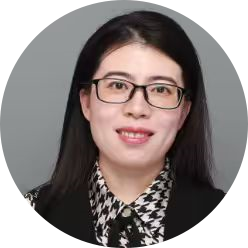








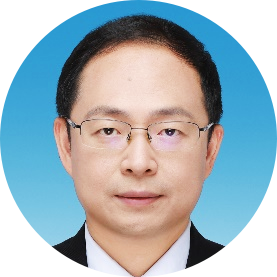

.png)
.png)
.png)


















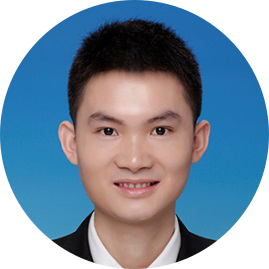




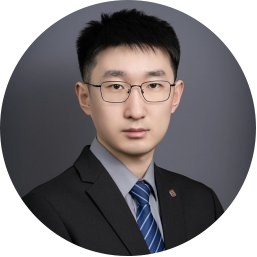





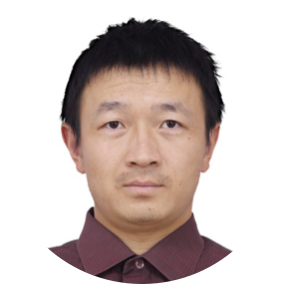
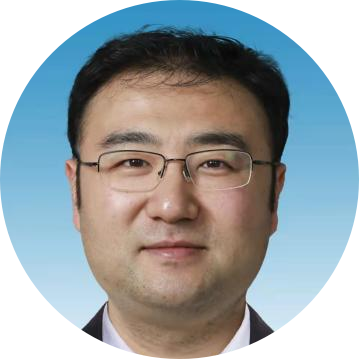




%20Wang_%E5%89%AF%E6%9C%AC.png)